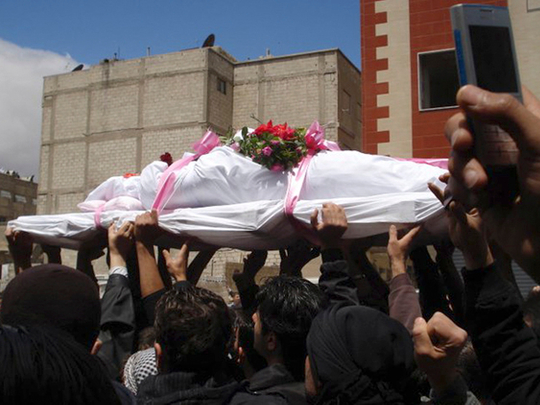
After a weekend of bloody violence across Syria, at least 125 people are dead, scores more injured and countless more arrested and detained by security forces — prompting two Syrian MPs to resign over the deadly crackdown on protesters.
This has come after weeks of sustained anti-government protests by demonstrators seeking meaningful political and social reforms and economic development opportunities. It was just last Tuesday that Syria lifted its emergency law after 48 years, which was a major demand of the protest movement against the regime. But as expected, this act alone isn't enough and protesters are demanding comprehensive political and economic changes. There is a lesson for President Bashar Al Assad in recent developments in his neighbouring countries. Popular demands cannot be silenced, and it takes more than tear gas and rubber rounds to stifle years of frustration and economic stagnation.
Al Assad needs to rein in those security force elements who believe that power can only be sustained by brutality. He must take full control of the security apparatus that believes repression works. The political bloodletting and sustained violence against the Syrian people cannot be allowed to continue unabated. While Al Assad has ended the decades-old emergency laws, there is still the need for more widespread and meaningful reforms.
The lesson of his neighbours is that the popular will of the people cannot be repressed by violence. Dialogue and political discourse must replace bullets and batons. The current environment offers Al Assad a real opportunity to show his leadership qualities, laying the groundwork for a presidency built on equality and openness. It is an opportunity for the younger Al Assad to finally escape from the shadows of his father, committing Syria to political, social and economic reforms. Embarking on such a path requires the attributes of real leadership.





